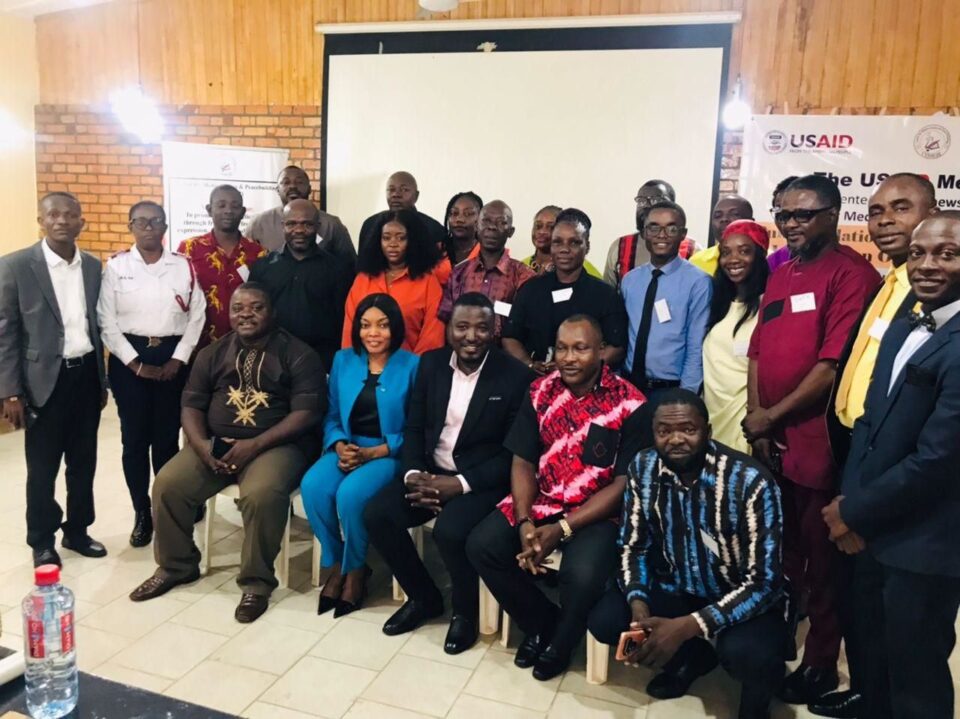The Center for Media Studies and Peacebuilding CEMESP has concluded a two-day training workshop for government public relations and public information officers, marking the end of year three activities under its USAID-sponsored Liberia Media Activity program.
The training workshop which focused on crucial topics such as fact-checking and the implementation of Liberia’s Freedom of Information (FOI) law brought together twenty-five participants.
Deputy Information Minister for Technical Affairs Daniel Sando delivered the keynote address at the opening of the workshop, emphasizing the importance of effective communication in government.
He highlighted that enhancing the skills of public relations officers is vital for promoting transparency and accountability within government operations.
Minister Sando’s remarks set a constructive tone for the sessions that followed.
The workshop provided technical support to government communicators, enhancing their fact-checking skills while also encouraging them to be responsive to the FOI regime’s implementation.
This initiative is part of a broader effort to strengthen media relations and improve public access to information in Liberia.
The Participants engaged in interactive sessions designed to foster practical skills in verifying information before dissemination.
In his special remarks, Togar Hodges, the head of Liberia’s Independent Information Commission (IIC), underscored the significance of the FOI law in promoting democratic governance.
He urged the participants to utilize their training to ensure that accurate information reaches the public, thereby building trust between citizens and government institutions.
CEMESP Executive Director Malcolm Joseph provided an overview of the training program, thanking USAID for its continued support.
He noted that the workshop is a critical step in empowering government communicators to navigate challenges related to misinformation and public perception effectively.
Mr. Joseph expressed optimism that participants would apply their newly acquired skills in their respective roles.
The training sessions included practical exercises on fact-checking techniques, discussions on ethical communication practices, and insights into leveraging media platforms for effective public engagement.
At the end of the workshop the participants reported feeling more equipped to handle inquiries from journalists and the public regarding government policies and initiatives.
As part of their learning experience, attendees were encouraged to share best practices from their own experiences in public relations.
This collaborative approach fostered a sense of community among participants, who recognized the shared challenges they face in their roles as communicators.
The conclusion of this workshop signifies a commitment to ongoing professional development for public relations officers in Liberia. It also reflects a broader strategy to enhance governmental transparency and responsiveness through improved communication practices.
Looking ahead, CEMESP plans to continue offering training opportunities as part of its partnership with USAID through Internews-Liberia.

